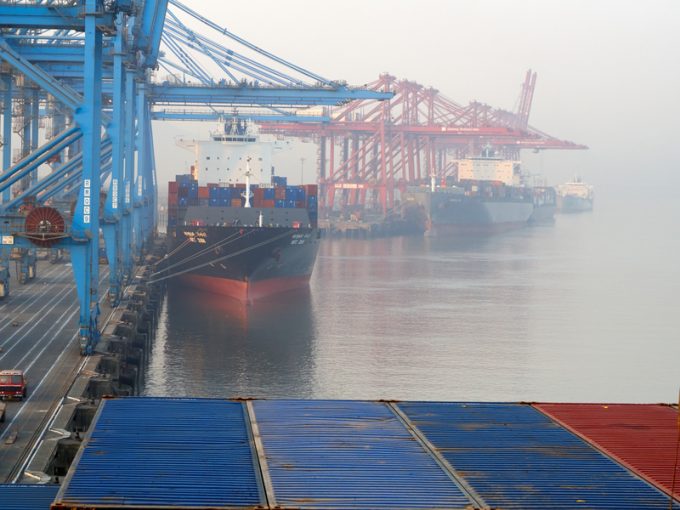Don't chase that final dollar, warning to shippers delaying signing new contracts
Shippers delaying signing long-term contracts in the belief that the market could soften in their ...

Container lines serving the India-US trade seem to have realised that pushing through hefty general rate increases (GRIs) or peak season surcharges (PSSs) is a hard game, unless cargo volumes tick up in a sustainable way.
Accordingly, major carriers, including Hapag-Lloyd, CMA CGM and Maersk, have reworked their pricing strategies.
An across-the-board $200 per box increase is on the cards for shippers, from the beginning of next month, for India-US bookings, after liners abandoned their rate increases for this month.
“This GRI/GRA adjustment is applicable to all containers sailing from 1 December, and is valid until further notice,” Hapag-Lloyd told customers.
Maersk also issued a notice advising customers of the impending rate increase for all types of cargo shipped from the Indian subcontinent and the Middle East to US and Canada, while CMA CGM will attempt to levy a PSS of $200 per box for Indian shipments to US east and gulf coasts, and said it would “apply to tariff or service contract rates on all cargo moving under the scope of the tariff rates”.
Short-term contract rate levels on trades out of India to US have continued to move southwards. For example, leading carriers are accepting bookings from West India to US east coast at about $1,500 per teu and $1,700 per feu, down from $1,700 and $2,100, respectively, a month ago, according to market sources.
Sources also put current average India-US west coast rates at $1,450/teu and $1,850/feu, compared with the month-ago levels of $1,600 and $1,700, respectively.
But some positive trade signs are emerging for carriers. Last month India’s exports rose for the first time in eight months, according to available preliminary data. By value it was up 3% year on year, to some $31.6bn, largely propelled by gains in pharmaceutical and engineering goods.
That uptick followed a moderate 2.6% YoY fall in exports during September, indicating the sequential turnaround after a long streak of setbacks.
“With the economic outlook for Asia and the Pacific remaining upbeat, and the region’s developing economies expected to grow 4.7% in 2023 and 4.8% in 2024, it may lead to demand picking up from these regions and countries,” said A Sakthivel, president of the Federation of Indian Export Organisations.
“The need of the hour is to provide further momentum to the economy through easy and low-cost credit to the MSMEs [micro small-to-medium enterprises], marketing support promoting exports and GST [goods and services tax] exemption on freight on exports,” he added.
Indian container volumes also saw measurable traction last month, according to new data. Ports handled some 1.9m teu in October, up 5% on the 1.8m teu in September.
Meanwhile, efforts to push the export trade seem to be gathering pace. This week, the government Agricultural and Processed Food Products Export Development Authority performed a trial movement of fresh bananas to the Netherlands by sea, boosting perishable cargo trade on the back of tech-enabled supply chain solutions. The shipper was Mumbai-based INI Farms.
“Over the past two years, the firm has made extensive efforts to enhance the quality and shelf life of bananas to meet the strict standards of the European market,” the ministry noted.
“The long-distance market and high costs were obstacles to starting commercial operations, and the export of the first trial shipment of bananas will help build capacity among Indian exporters and EU importers by ensuring quality fruits,” it added.
You can contact the writer at [email protected].
Comment on this article